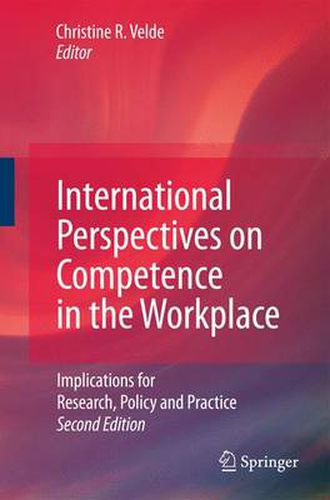Readings Newsletter
Become a Readings Member to make your shopping experience even easier.
Sign in or sign up for free!
You’re not far away from qualifying for FREE standard shipping within Australia
You’ve qualified for FREE standard shipping within Australia
The cart is loading…






This title is printed to order. This book may have been self-published. If so, we cannot guarantee the quality of the content. In the main most books will have gone through the editing process however some may not. We therefore suggest that you be aware of this before ordering this book. If in doubt check either the author or publisher’s details as we are unable to accept any returns unless they are faulty. Please contact us if you have any questions.
As the world’s economy develops into a more dynamic, fast-moving, and unpredictable entity, it is crucial that the workers who create wealth have the ability to assess and respond to new and unforeseen challenges. In other words, the future will require a more competent workforce. What, though, does this mean in practice? In this, the fully revised second edition of Christine Velde’s book, a variety of researchers from around the world provide a truly international perspective on the issue. They help to redefine the term competence. Rather than responding to challenges using a pre-existing set of skills, they see competence as having the ability to assess new situations, and then adapt one’s response accordingly, particularly in collaboration with others.
Providing the reader with insightful perspectives about competence in different situations and contexts, the book’s sections explore the concept of competence in industry and vocational education, in schools and colleges, in small businesses and companies, and in universities. The interpretation, experience and teaching of competence in the workplace is boiled down to five essential components that in themselves represent an argument for a more holistic conception of competence. Velde herself concludes the book by synthesizing and reflecting on the contents.
This book provides the reader with insightful perspectives on competence, and the characteristics of learning environments in different workplace contexts. Drawing on phenomenographic insights allows it to present a more enlightened view of competence, at the same time as opening up an international dialogue about the meaning and interpretation of competence in the workplace. Useful not only to educators and researchers, this volume will also assist leaders and managers in a variety of contexts to develop more meaningful workplaces.
$9.00 standard shipping within Australia
FREE standard shipping within Australia for orders over $100.00
Express & International shipping calculated at checkout
This title is printed to order. This book may have been self-published. If so, we cannot guarantee the quality of the content. In the main most books will have gone through the editing process however some may not. We therefore suggest that you be aware of this before ordering this book. If in doubt check either the author or publisher’s details as we are unable to accept any returns unless they are faulty. Please contact us if you have any questions.
As the world’s economy develops into a more dynamic, fast-moving, and unpredictable entity, it is crucial that the workers who create wealth have the ability to assess and respond to new and unforeseen challenges. In other words, the future will require a more competent workforce. What, though, does this mean in practice? In this, the fully revised second edition of Christine Velde’s book, a variety of researchers from around the world provide a truly international perspective on the issue. They help to redefine the term competence. Rather than responding to challenges using a pre-existing set of skills, they see competence as having the ability to assess new situations, and then adapt one’s response accordingly, particularly in collaboration with others.
Providing the reader with insightful perspectives about competence in different situations and contexts, the book’s sections explore the concept of competence in industry and vocational education, in schools and colleges, in small businesses and companies, and in universities. The interpretation, experience and teaching of competence in the workplace is boiled down to five essential components that in themselves represent an argument for a more holistic conception of competence. Velde herself concludes the book by synthesizing and reflecting on the contents.
This book provides the reader with insightful perspectives on competence, and the characteristics of learning environments in different workplace contexts. Drawing on phenomenographic insights allows it to present a more enlightened view of competence, at the same time as opening up an international dialogue about the meaning and interpretation of competence in the workplace. Useful not only to educators and researchers, this volume will also assist leaders and managers in a variety of contexts to develop more meaningful workplaces.